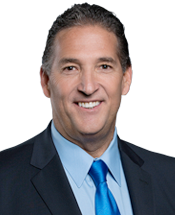 Sacramento, CA – Assemblymember Jim Frazier (D – Discovery Bay) led his colleagues today, Friday, April 7, 2017 in passing Senate Bill 1 and Assembly Constitutional Amendment 5 with the required two-thirds vote in both the Assembly and Senate. SB 1 now heads to the Governor for his approval and ACA 5 will head to the voters for their approval.
Sacramento, CA – Assemblymember Jim Frazier (D – Discovery Bay) led his colleagues today, Friday, April 7, 2017 in passing Senate Bill 1 and Assembly Constitutional Amendment 5 with the required two-thirds vote in both the Assembly and Senate. SB 1 now heads to the Governor for his approval and ACA 5 will head to the voters for their approval.
“Our roads are terrible, costing each person at least $760 in repairs, and the state was really just putting a Band-aid on a broken bone,” he said. “After two years of discussions and negotiations, passing SB 1 today is a testament to efforts to build a remarkable and diverse coalition to improve our transportation system that truly benefits everyone.”
SB 1 will resolve the long-term shortfall in transportation funding by provide new funding to make necessary road safety improvements and repair local streets, freeways, bridges, and overpasses. New revenues will generate on average $5 billion per year to improve efficiencies and effectiveness of transportation maintenance throughout the state. Roughly $3 billion annually will be allocated to fix roads, half of which will be directly allocated for local needs. The remaining $2 billion is split among other transportation-related programs.
Revenue sources for SB 1 include a 12 cent per gallon gas excise tax, ending the annual Board of Equalization adjustment, a 20 cent diesel excise tax, a 4% diesel sales tax increase, a per vehicle transportation improvement fee of no more than $50 for 87% of vehicles, a $100 fee on zero emissions vehicles, and $100 million gained in Caltrans efficiencies.
To ensure that these new revenues are allocated as intended, Frazier authored Assembly Constitutional Amendment 5. ACA 5 locks up transportation-related revenues from vehicle fees for use only for transportation maintenance and improvements, and prohibits use toward paying principal and interest on state transportation general obligation bonds.
An after-hours question was sent to his staff asking if Frazier had first considered reprioritizing existing state spending before pursuing tax increases. Please check back later for his response.

Leave a Reply